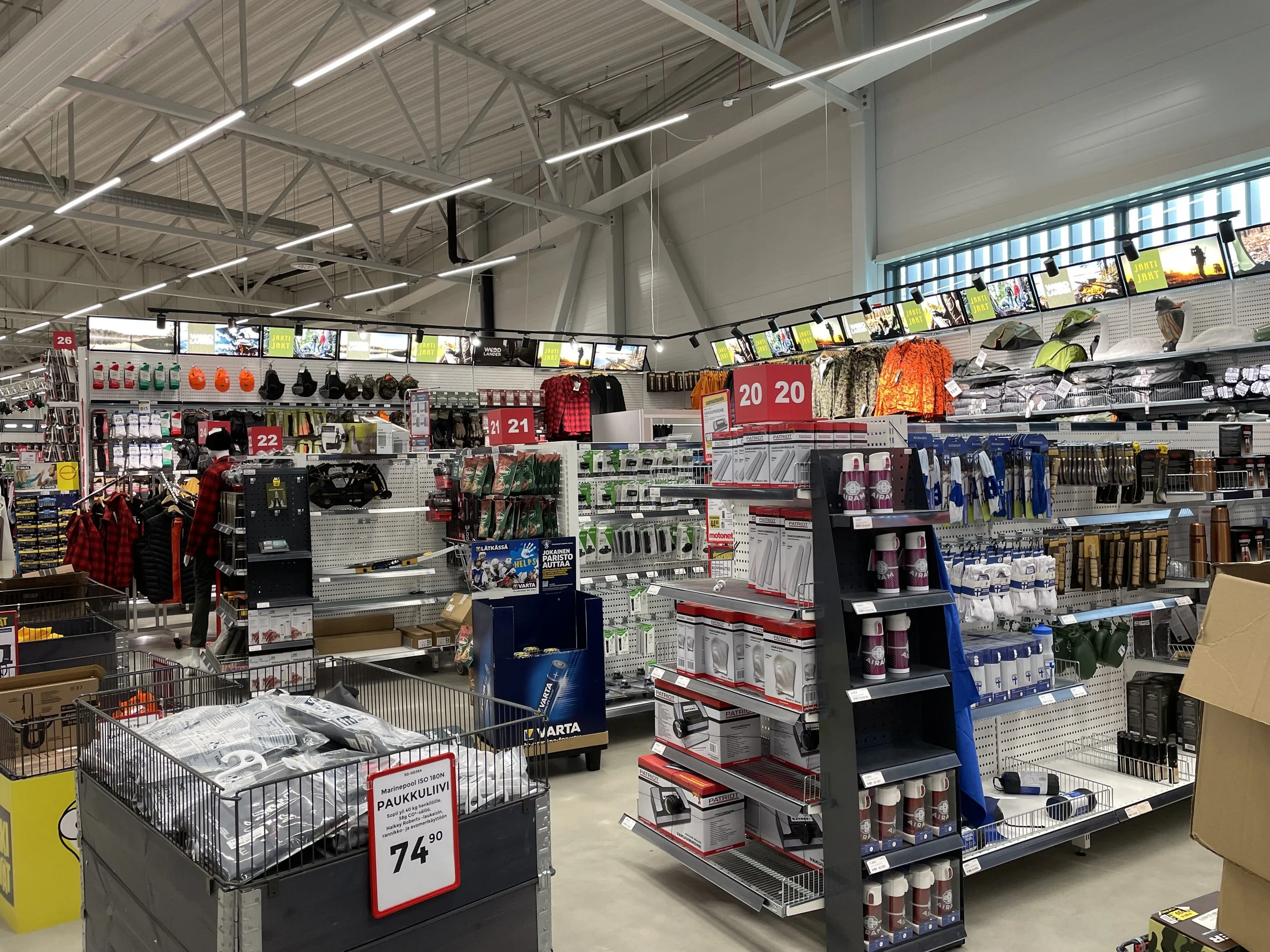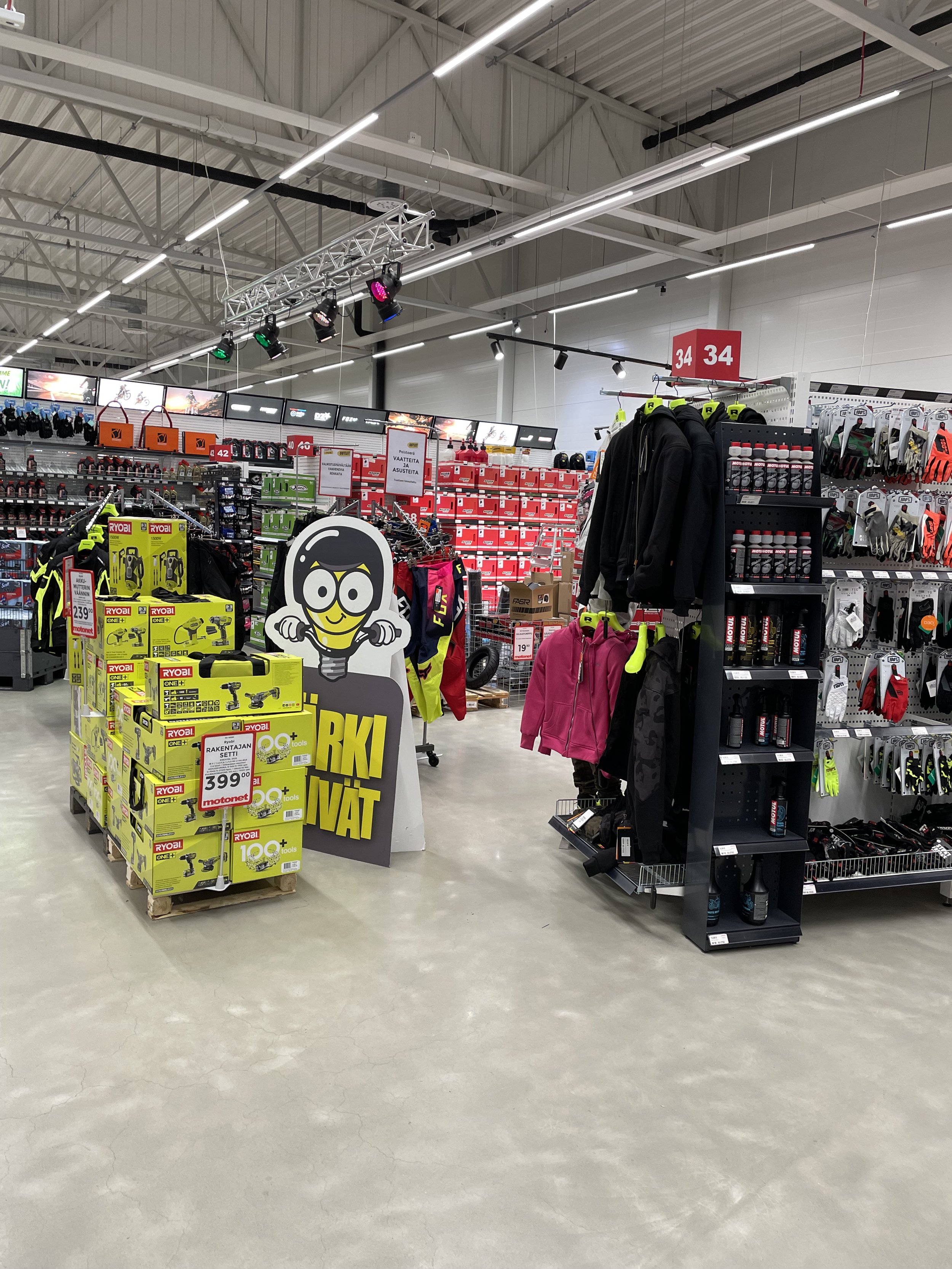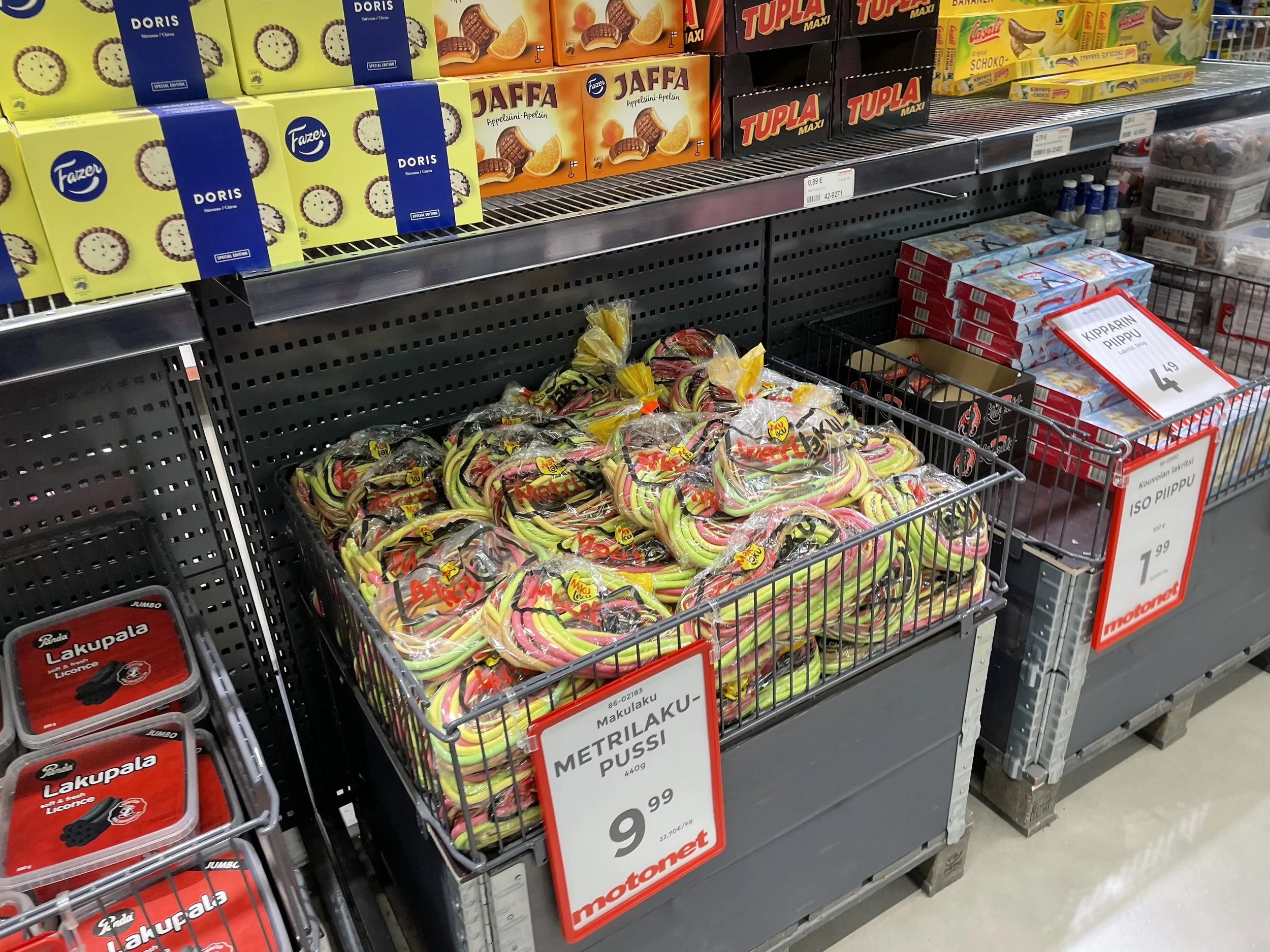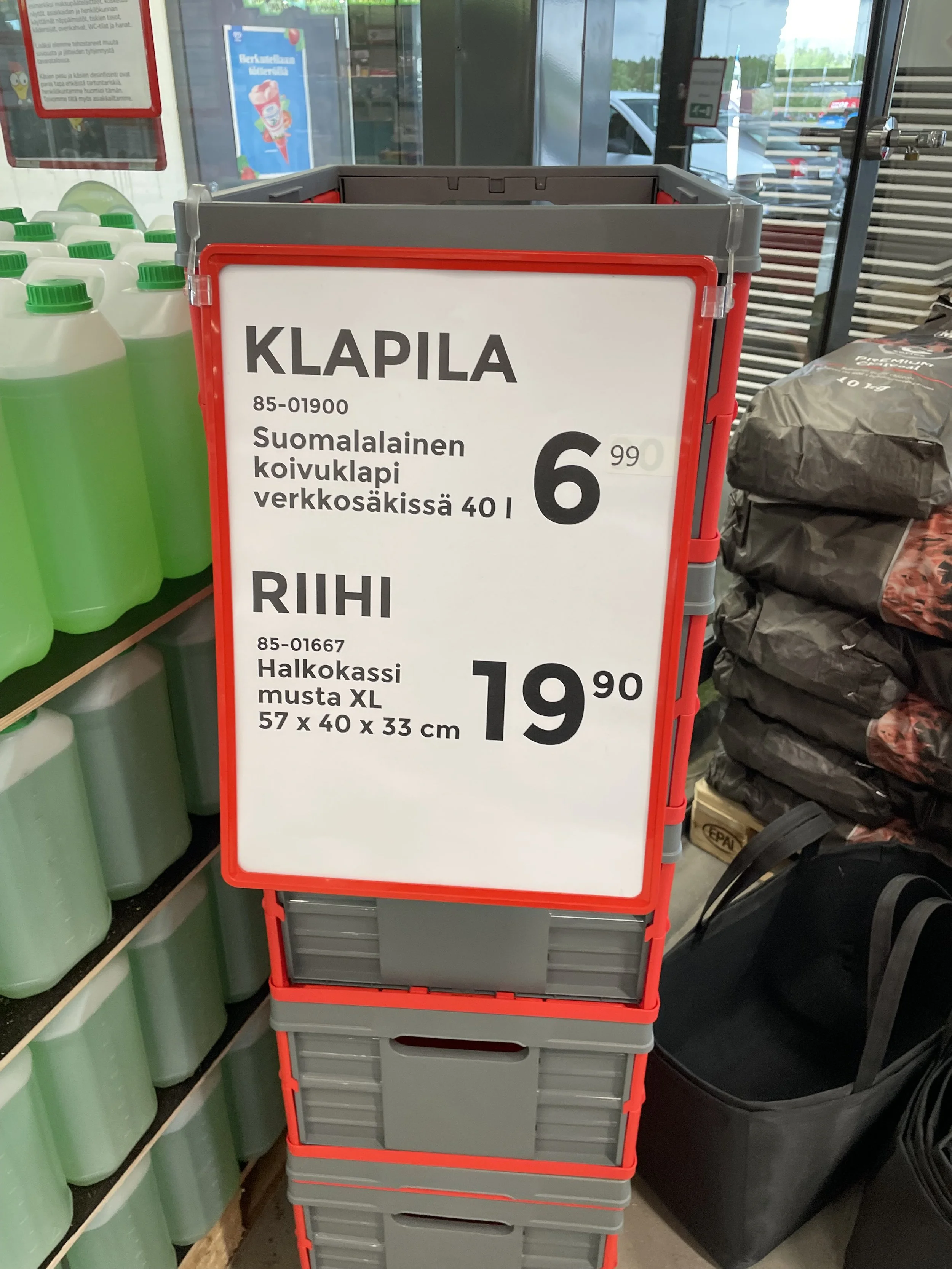Motonet - a fresh take on the discounter concept
Motonet is a Finnish discount chain with more than 30 stores stores in Finland and Estonia. The company is planning to expand to Sweden.
Motonet was founded in 1989 as a car parts retailer. In 2007 it was acquired by the Broman Group. Gradually the company broadened its assortment to include all kinds of products from fishing to barbecuing and everything in between.
One key differentiator for Motonet are the services it provides for its customers. It’s not common for a discounter to have services such as oil level checks or tire pressure measurements on their repertoire.
Motonet clearly aims for giving the customer something extra among the cheap prices.
One other factor pulling Motonet away from the usual discounter concept is the assortment. Discounters are usually regarded as having efficient assortments. However, Motonet seems to have quite broad assortment in many categories.
One might ask if Motonet even is a traditional discounter?
We visited Motonet Hannus, located in Espoo in capital region in Finland. The store entrance doesn’t offer any wow effects, but is rather messy and restless.
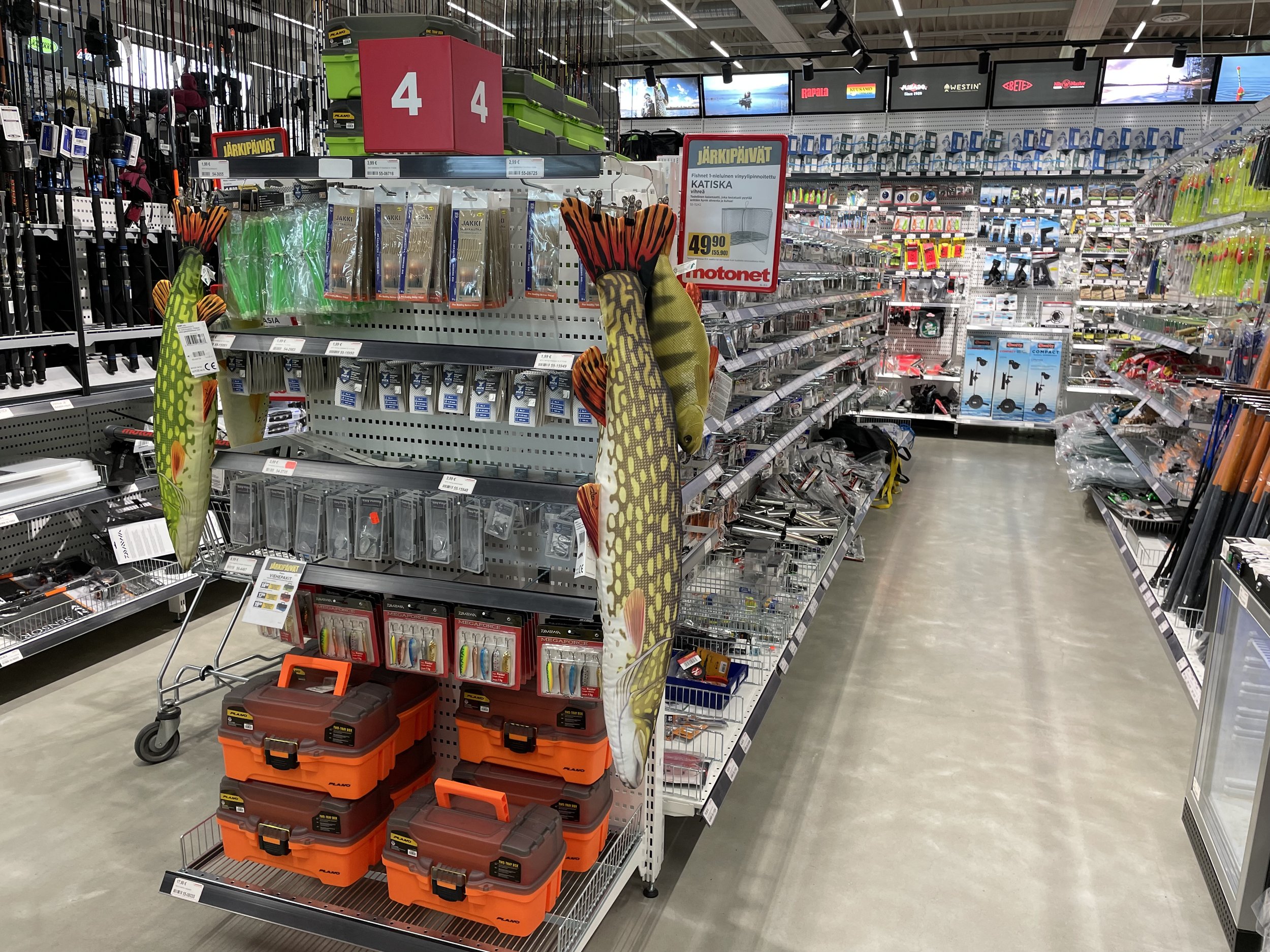
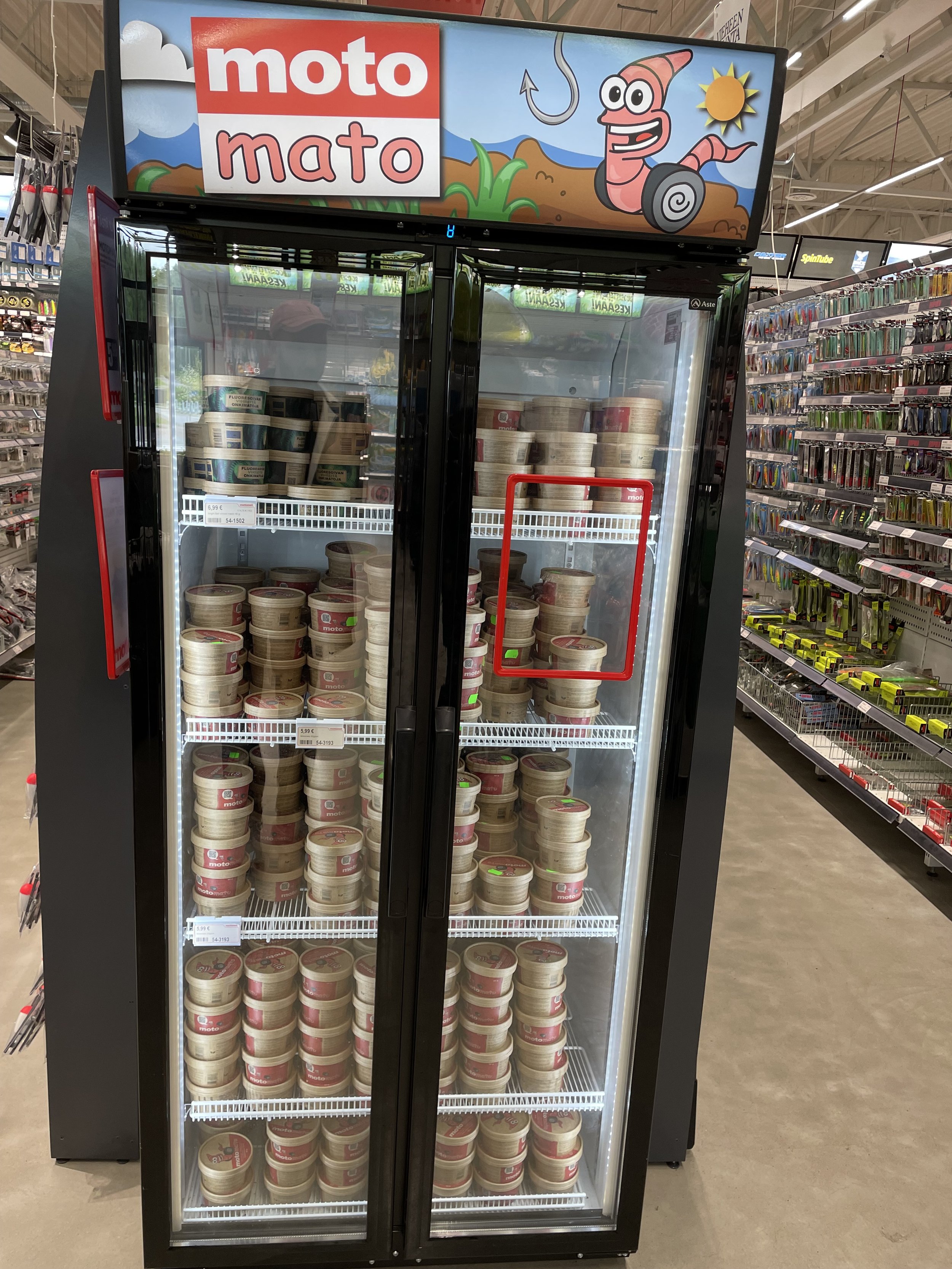

Next to the entrance is fishing equipment, which clearly brings a lot of revenue and profits to the store. The selection is very broad and one can find almost everything for leisure fishing. One nice touchpoint is the Motonet branded worms called “Motomato”. This illustrates that an inventive approach can help sell anything.
Clean and easy to navigate
The store is clean, but the shelves are sometimes only half full. This also is the case in the key sales points in the middle aisles.
The navigation through the store is easy as the route is forced like in an IKEA store. One unusual solution is the high shelves. The space is very well managed as the height of the store is utilised.
Great commercial collaborations
Cleverly Motonet has space for brand and advertisement inside the concept in the higher part of the sales shelves. This is a nice and smart way to commercialise the store space as Motonet surely has sold the space to their supplier brands.
In the barbecue section Motonet has given a lot of space to collaborations with brands. Weber is a well known BBQ brand, which has acquired floor space from Motonet for their Shop-in-shop.
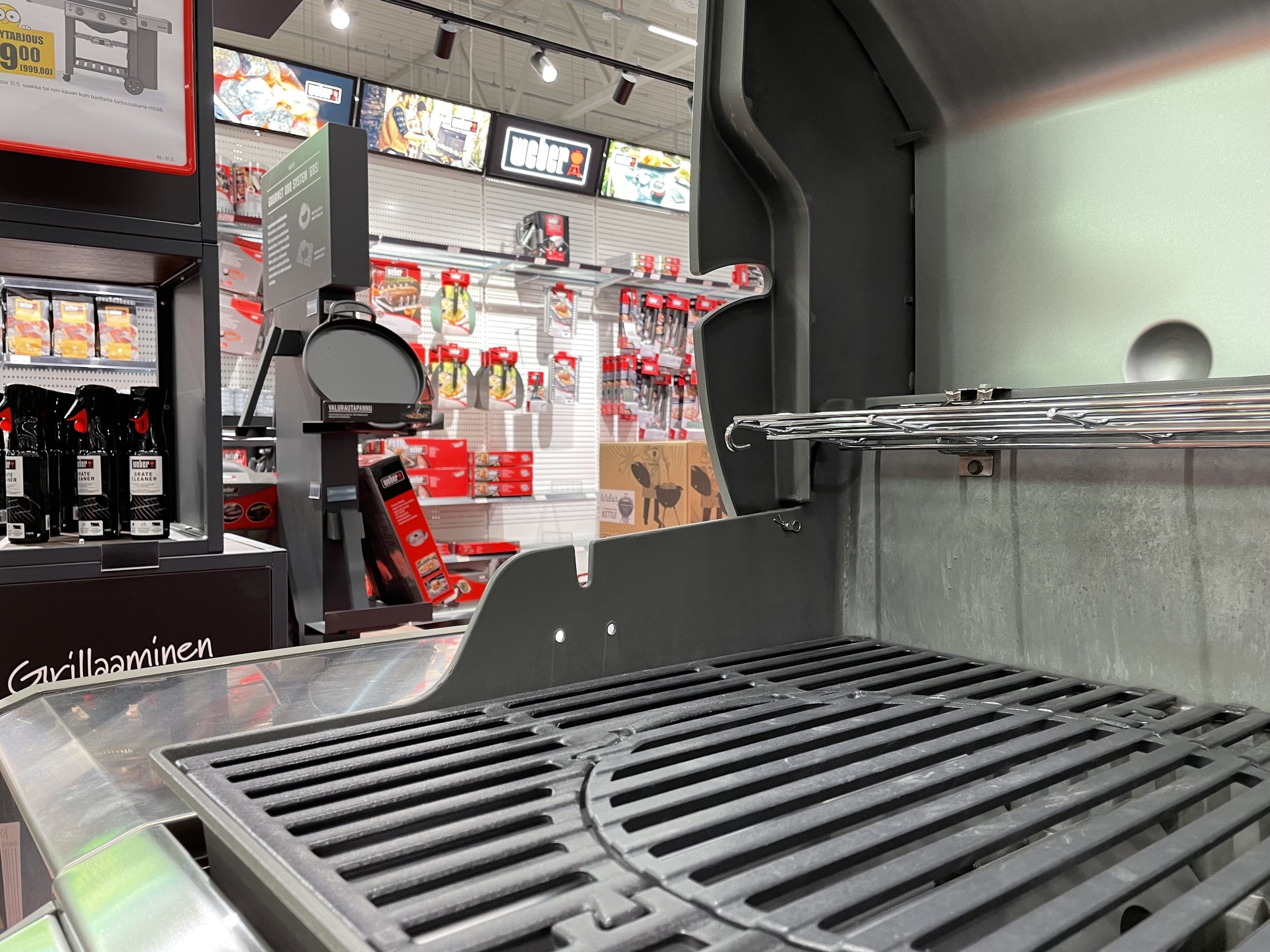
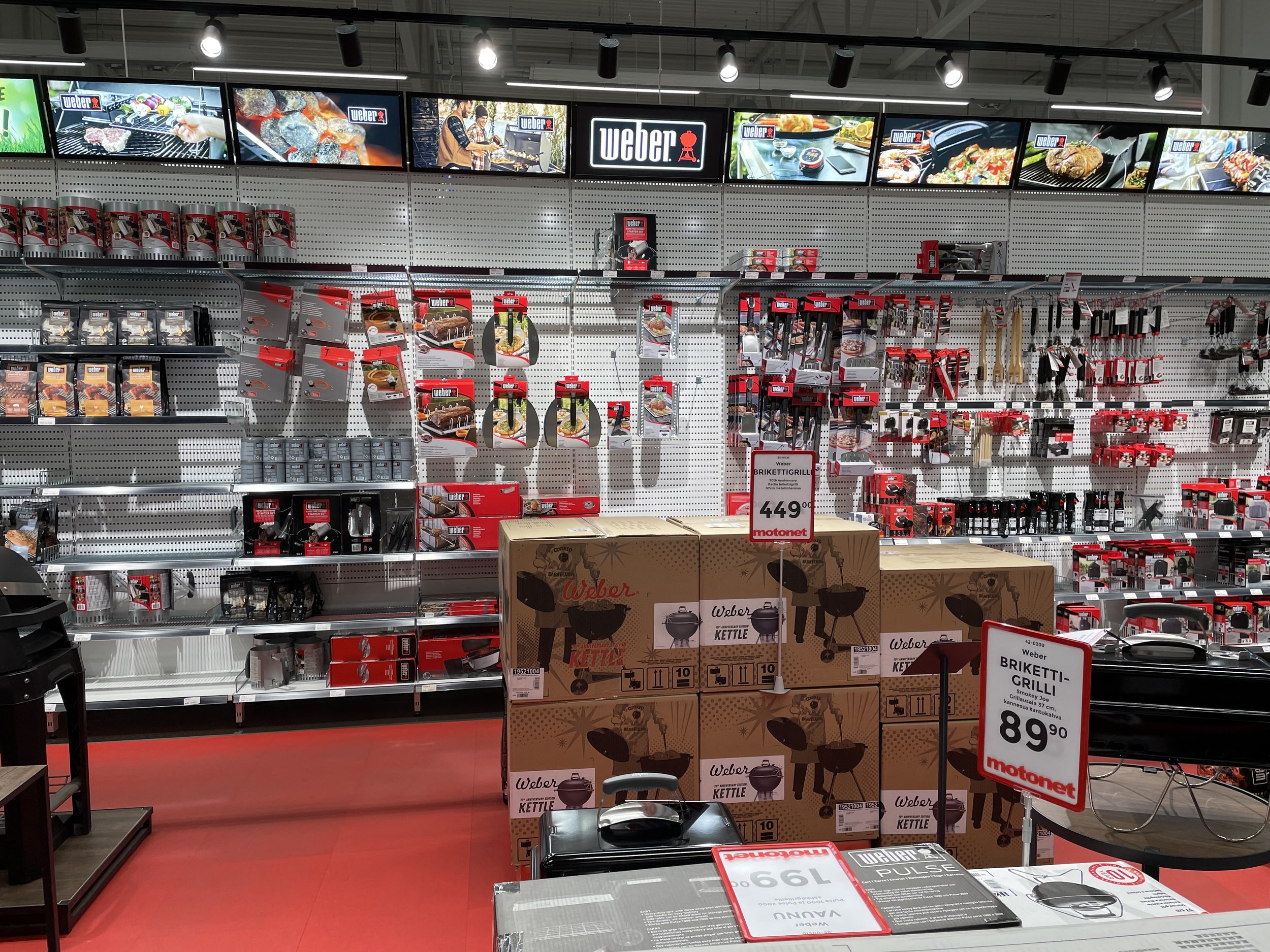
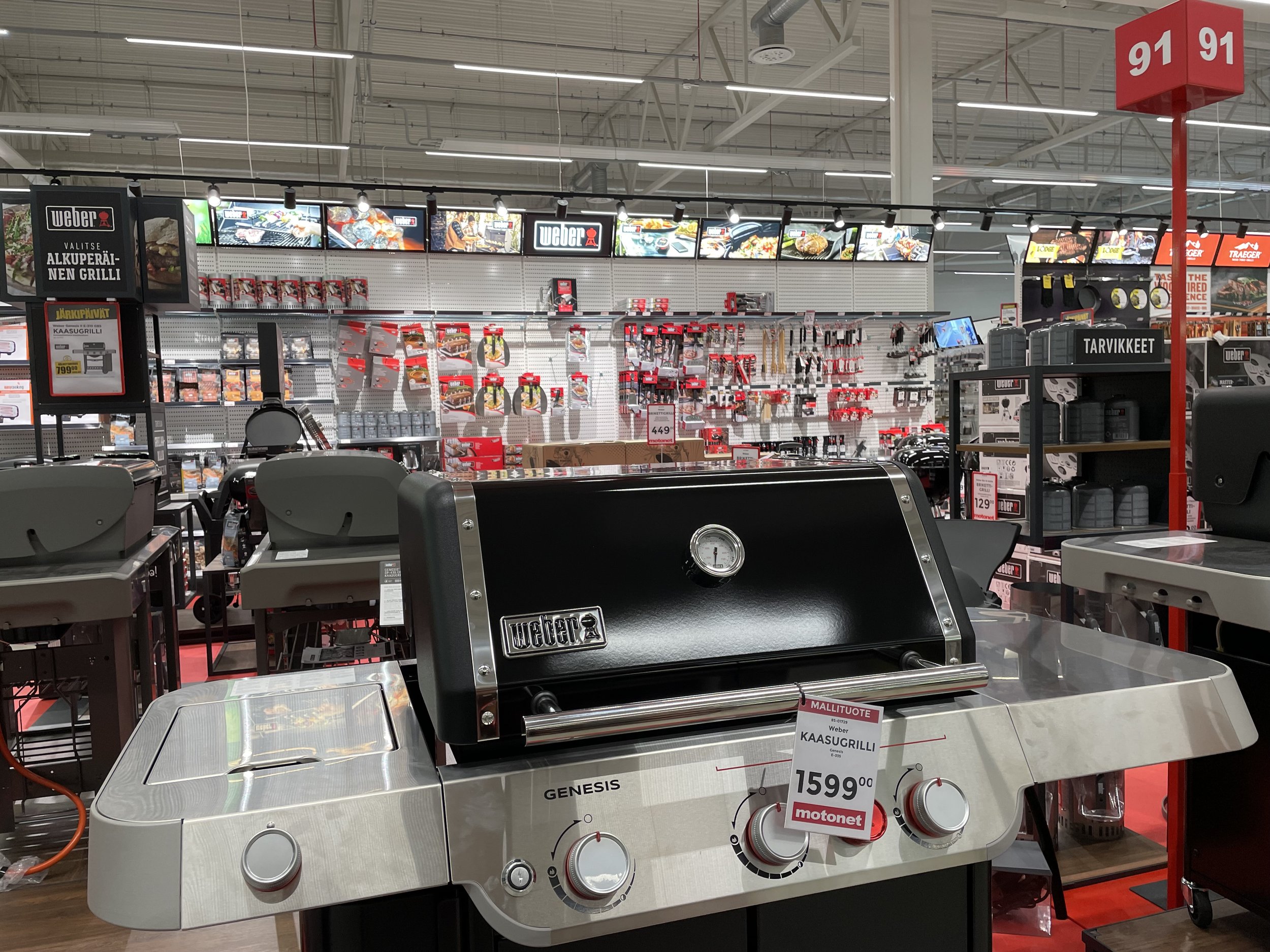

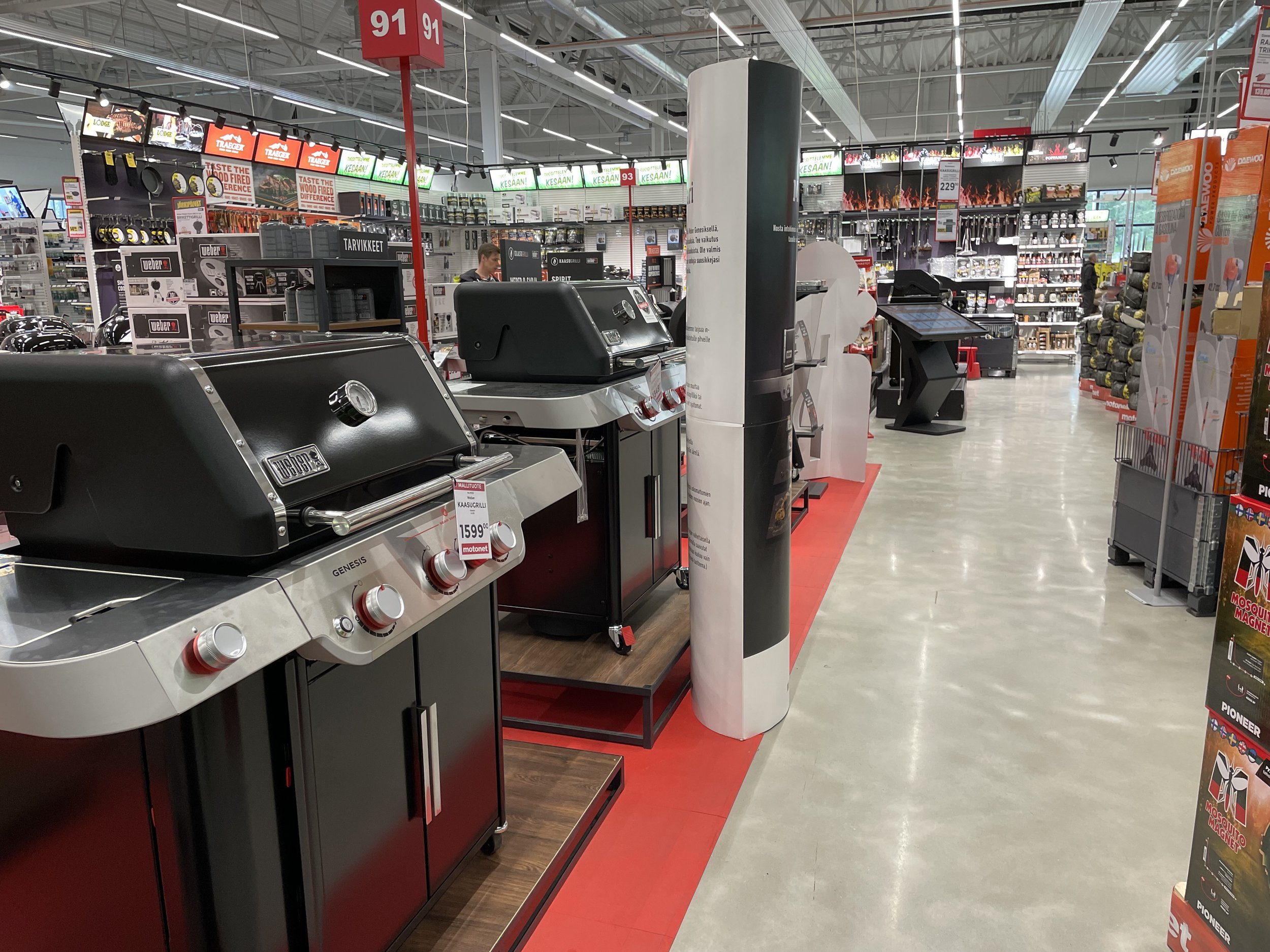

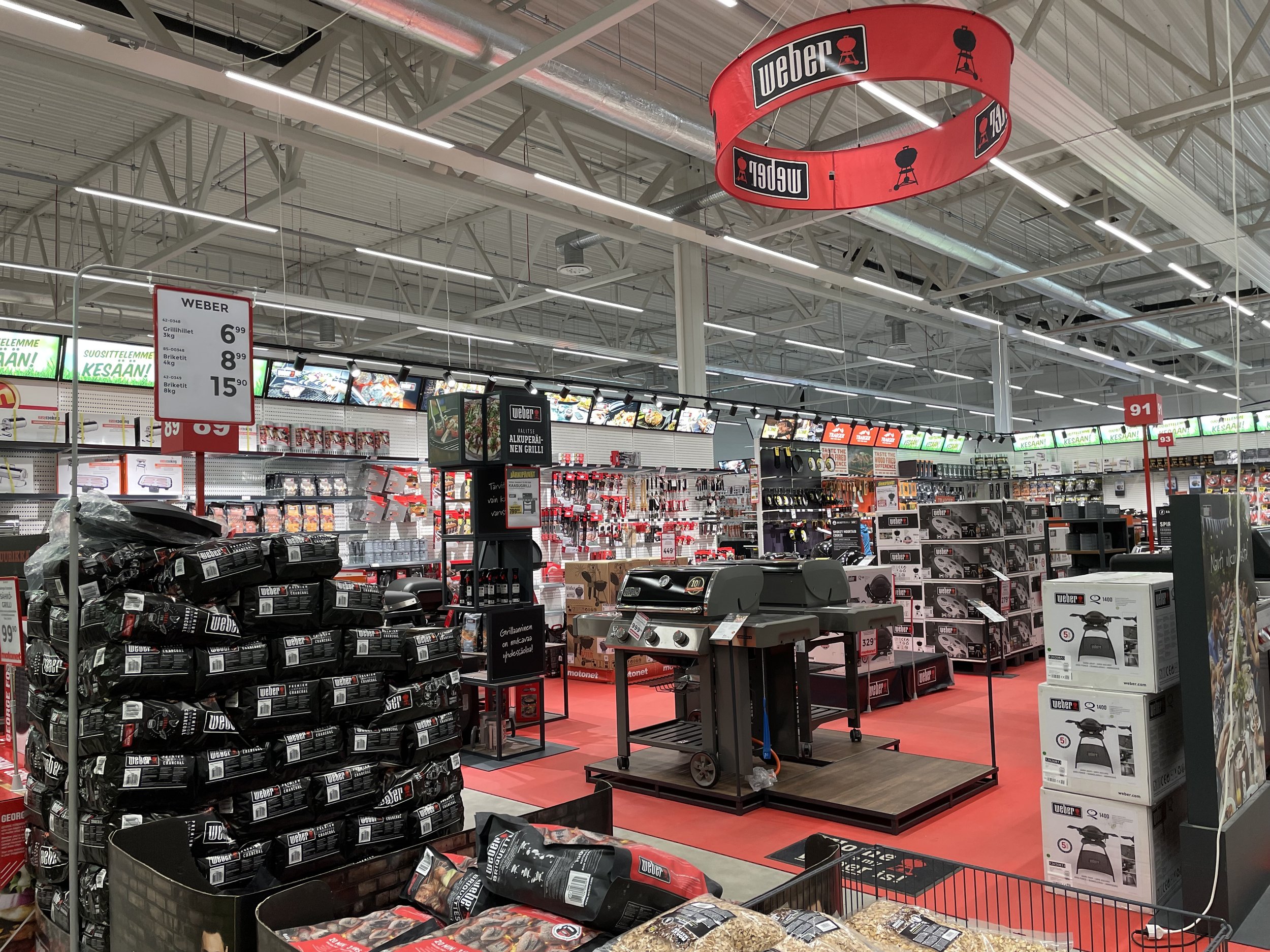
For the retailer this is an easy way of organising destination categories. One curiosity is how the grills are introduced in the department. All the expensive models are located next to the main aisle, while the less expensive models are hidden in the back of the department. This is a common way of driving sales and profits.
Less inspiration, more practicality & assortment
The assortment is wide in certain categories like fishing where Motonet has created competitive advantage by offering a wide range for affordable prices.
The DIY and car assortment is nicely complemented with some other categories, such as alcohol & impulse products (candies, snacks, soft drinks…). These drive up average basket sizes with rather good profit margins.
All in all Motonet’s new concept is not very inspirational, but what it lacks in inspiration it gains in practicality.
Motonet is very logical in serving it’s core customer demographic very well. Everything in the store is designed to serve someone who is interested in cars and other DIY activities. And this is done with a good and down-to-earth commercial twist in all of the small details. No wonder Motonet is growing so well and so profitably (11% profit margin).
All in all: Motonet knows who they are for and the customer knows what he gets. That simplicity and trust is what keeps luring the customers to visit Motonet over and over again.
How about Sweden?
It is easy to imagine that this level of execution and strategic clarity coupled with great ability to commercialise the stores would work also in Sweden. The patience of a family owned business also gives Motonet the long term perspective needed to break into a new market.








